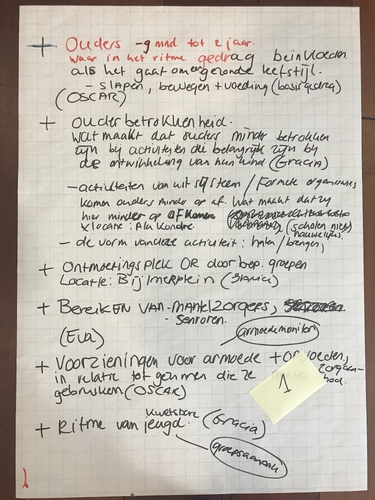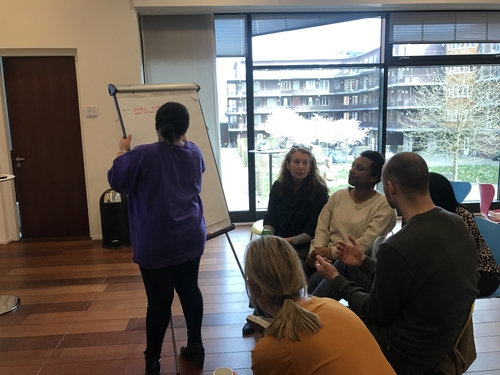DRSR Kick-Off | Presentatie Groep 4
Part of
Keywords
Issues about small children (9 months to 2 years old) and their parents, parent involvement, public space, mental health and informal care of seniors (+55), services for poverty and education in relation to families and vulnerable youth.

Small children (9 months to 2 years old) and their parents: The municipality has very limited information on very young children and their relationship with their parents. The Amsterdamse aanpak gezond gewicht (Amsterdam approach to healthy weight) suggests a healthy life style for both the parents and their children; if the parents eat healthy and do healthy activities, so will their children. How can the rhythm of the parents influence the children to have a healthy lifestyle?
Parent involvement: The parents participate less and less to the education life of their children. They do not attend the parent-teacher meetings or other important meetings that they should participate as parent. These events are important to contribute to the development of the children. On the other hand, it is observed that they are more involved in the activities such as theater plays or sports. It is suggested to explore the rhythm of the parents and their children, in order to understand what makes them attend to certain services and not the others.
Public space: At the Bijlmerplein there are many different activities and it becomes the meeting point of different groups, such as the grouping men (groepsmannen). The daily rhythms are very different than the nigh rhythms. What is the rhythm of the people who meet at the square in relation to the overall rhythm of the square?
Mental health and informal care of seniors (+55): The municipality knows that there are many caregivers in Zuidoost but they do not reach them sufficiently. There are also many services that are being developed for them, but are not being used. It would be nice to understand the rhythm of the group that makes use of informal and mental care, in order to reach these people.
Services for poverty and education in relation to families: Exploring the rhythm of the services in relation to the rhythms of families, to understand which services work and are actively used and which don’t.
Vulnerable youth: There are many young people in Zuidoost which are seen as vulnerable by the municipality. The vulnerable youth come from a non-conventional family style, with many times low-income parents, mental health or (drug) abuse issues in the family. Or simply, the parents are not much involved in the lives of their children. These young people are also very likely to leave school at an early age and get involved in neighbourhood criminality. What can be the possibilities to stop this from happening? What are the rhythms of the vulnerable youth at the moment?
